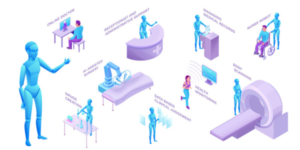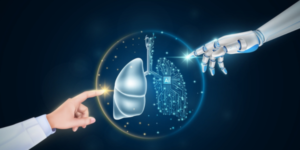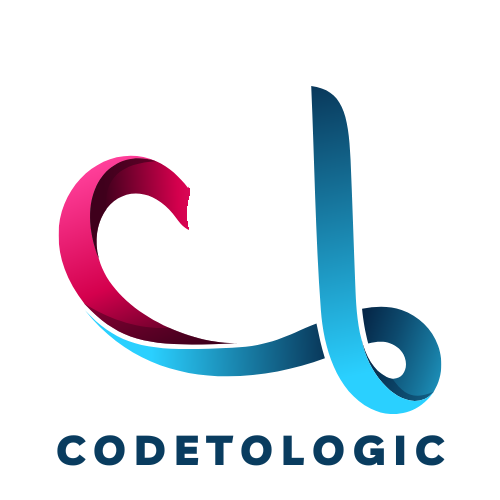27 Jul
Artificial Intelligence (AI) has already made significant strides in transforming the healthcare landscape, and its impact is set to grow even further in the coming years. While AI may sound complex, it’s essentially about smart machines and computers that can perform tasks that typically require human intelligence. In healthcare, AI is becoming increasingly relevant, promising a future where patient care is more efficient and accessible. In this article, we’ll explore the future of AI in healthcare without diving into technical jargon, providing a glimpse of what we can expect.
Enhanced Diagnoses:
AI systems are becoming adept at analysing medical images like X-rays and CT scans. In the future, we can anticipate even more accurate and rapid diagnosis of diseases such as cancer and fractures. This means earlier detection and potentially better treatment outcomes.

Personalised Treatment:
Imagine going to the doctor, and your treatment plan is tailored specifically for you. AI will play a crucial role in making this a reality. By analyzing your medical history and unique genetic makeup, AI can suggest treatments and medications that are most likely to work for you, minimizing guesswork and side effects.

Faster Life Saving Drug Discovery:
Developing new drugs is a time-consuming and costly process. AI can help by analyzing enormous datasets to identify potential drug candidates quickly. In the years to come, we can expect more breakthroughs and innovative medications thanks to AI.

Remote Monitoring:
With the help of AI, patients can keep tabs on their health without frequent visits to the hospital. Wearable devices and mobile apps can monitor vital signs and send this information to healthcare providers in real-time. This means that your doctor can keep an eye on your health without you having to be physically present.

Smoother Administrative Processes:
The paperwork and administrative aspects of healthcare can be a hassle, but AI is streamlining these processes. Appointments, billing, and medical coding are becoming more efficient, reducing the time and effort required for administrative tasks and ultimately improving the patient experience.

Balancing Human Expertise and AI:
In the coming years, finding the right balance between human healthcare professionals and AI assistance will be crucial. While AI can enhance healthcare, it cannot replace the expertise and empathy of doctors and nurses. Expect a future where healthcare is a collaboration between humans and machines.

Ethical Considerations:
As AI becomes more integral to healthcare, ethical concerns will also rise. Ensuring patient privacy, minimizing algorithm bias, and addressing job displacement are topics that will require careful attention as AI is integrated further into healthcare.

Aging and AI:
Our global population is aging, and AI has a role to play in addressing the unique healthcare needs of the elderly. We can anticipate AI helping with early detection of age-related conditions and enhancing care for the elderly population.
Rural and Underserved Areas:
In the future, AI can help bridge the healthcare gap between rural and urban areas. Telemedicine, powered by AI, can extend healthcare services to remote and underserved communities, making healthcare more accessible to all.
The Human Touch:
While AI is undoubtedly transforming healthcare, it’s essential to remember that the human touch in medicine remains irreplaceable. AI can aid doctors and nurses in making informed decisions, but it can’t replicate the care, understanding, and compassion that healthcare professionals provide.

Conclusion:
In conclusion, AI in healthcare is evolving at a rapid pace. The coming years will see improvements in diagnoses, personalised treatments, and the drug development process. Remote monitoring will become more sophisticated, making healthcare more convenient. Administrative tasks will be more efficient, freeing up time for patient care. However, striking the right balance between AI and human expertise and addressing ethical concerns will be crucial for a successful healthcare future. While AI is set to enhance the healthcare industry, it can never replace the human aspect of care and compassion that patients need and deserve.
